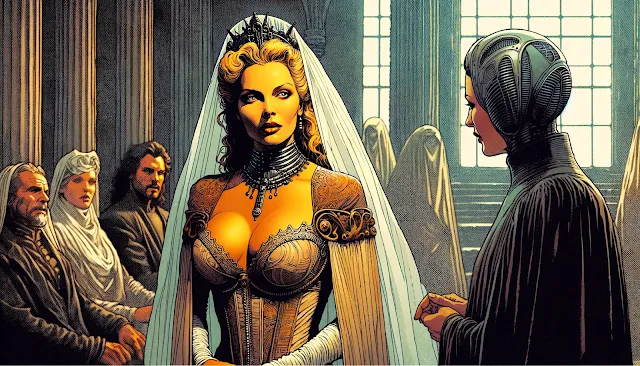The character of Alia Atreides in "Dune 2," based on Frank Herbert's seminal science fiction series, serves as a fascinating case study of such adaptation challenges and creative decisions.
In a similar note, actor Tim Blake Nelson has his scene cut from Dune 2 as well.
In the novels, Alia is a complex character known for being "pre-born," a unique status that gives her access to her ancestors' memories and consciousness from within the womb.
However, in the film adaptation, this aspect of Alia's character undergoes a significant transformation, with her being depicted as an embryo rather than being actively born or having a presence outside the womb.
This choice, while a departure from the source material, was motivated by several key considerations, including the difficulties associated with portraying such a character on screen, the desire to streamline the plot, and the impact on other characters' roles within the story.
Adapting Alia's pre-born consciousness and her role from the novel to film presented unique challenges. In Herbert's work, Alia's condition as pre-born allows her a depth of knowledge and wisdom that is unparalleled for her age, as she can access the memories and experiences of her ancestors. This aspect of her character is rich with philosophical and psychological implications, exploring themes of identity, power, and the burdens of legacy.
Adapting Alia's pre-born consciousness and her role from the novel to film presented unique challenges. In Herbert's work, Alia's condition as pre-born allows her a depth of knowledge and wisdom that is unparalleled for her age, as she can access the memories and experiences of her ancestors. This aspect of her character is rich with philosophical and psychological implications, exploring themes of identity, power, and the burdens of legacy.
However, translating such an internal, cerebral experience into a visual and narrative format that resonates with film audiences is inherently difficult.
The subtleties of Alia's internal struggles and the concept of a consciousness that is both ancient and infantile might not easily convey through the visual medium without extensive exposition or innovative visual storytelling techniques.
Another reason for the change involves the practicalities of narrative pacing and plot complexity in movies. "Dune" is renowned for its intricate plot, dense world-building, and large cast of characters, each with their own detailed backstories and motivations.
Another reason for the change involves the practicalities of narrative pacing and plot complexity in movies. "Dune" is renowned for its intricate plot, dense world-building, and large cast of characters, each with their own detailed backstories and motivations.
 |
| Alia Atredies Concept design |
The decision to keep Alia as an embryo effectively simplifies the narrative, focusing the plot on a smaller set of characters and dynamics.
This streamlining is often necessary in film adaptations to maintain a coherent and engaging storyline that fits within a standard movie length, ensuring that audiences who may not be familiar with the source material can still follow and enjoy the movie.
With Alia's role being minimized, other characters, notably Lady Jessica, assume parts of her narrative functions. This shift alters the dynamics of the story, focusing more on existing characters and their development. For example, by having Paul Atreides kill Baron Harkonnen instead of Alia, the film adaptation changes a pivotal moment of revenge and liberation in the story. This alteration not only simplifies the plot but also emphasizes Paul's role as the protagonist and hero, potentially making the story more accessible to viewers by centering the narrative more firmly around his journey.
With Alia's role being minimized, other characters, notably Lady Jessica, assume parts of her narrative functions. This shift alters the dynamics of the story, focusing more on existing characters and their development. For example, by having Paul Atreides kill Baron Harkonnen instead of Alia, the film adaptation changes a pivotal moment of revenge and liberation in the story. This alteration not only simplifies the plot but also emphasizes Paul's role as the protagonist and hero, potentially making the story more accessible to viewers by centering the narrative more firmly around his journey.

















